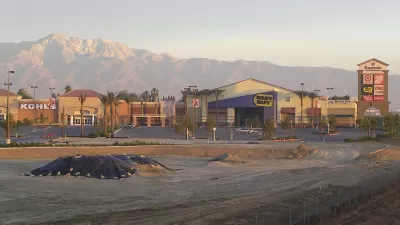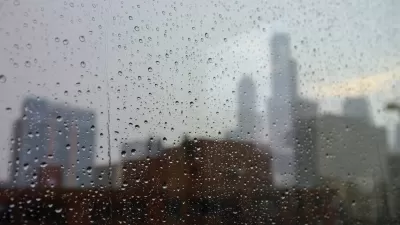Big-box retailers' new tactic to slash their taxes is the latest example of why cities are better off saying no to the boxes and cultivating Main Streets instead.

In February, the library in Marquette, Mich., announced that it was cutting its hours.
It wasn’t that its Sunday programming was any less popular, or that it had gotten the short end of the stick in next year’s budget planning. Instead, thanks to a new method that big-box stores are using to game the tax system, Marquette Township owed a $755,828.71 tax refund to the home improvement chain Lowe’s. Essential services like the library, the school district, and the fire department were on the hook to pay for it.
The Peter White Public Library would now be closed on Sundays.
Marquette has been hit hard by a tactic that the country’s biggest retailers are using to slash their property taxes. Known as the “dark store” method, it exemplifies the systematic way that these chains extract money from local governments. It’s also the latest example of the way that, even as local governments across the country continue to bend over backwards to attract and accommodate big-box development, these stores are consistently a terrible deal for the towns and cities where they locate.
Read the rest of the article at the link below.
FULL STORY: For Cities, Big-Box Stores Are Becoming Even More of a Terrible Deal

Alabama: Trump Terminates Settlements for Black Communities Harmed By Raw Sewage
Trump deemed the landmark civil rights agreement “illegal DEI and environmental justice policy.”

Planetizen Federal Action Tracker
A weekly monitor of how Trump’s orders and actions are impacting planners and planning in America.

Why Should We Subsidize Public Transportation?
Many public transit agencies face financial stress due to rising costs, declining fare revenue, and declining subsidies. Transit advocates must provide a strong business case for increasing public transit funding.

Judge Orders Release of Frozen IRA, IIJA Funding
The decision is a victory for environmental groups who charged that freezing funds for critical infrastructure and disaster response programs caused “real and irreparable harm” to communities.

‘Clybourne Park’ Sets Stage for Housing Equity Discussions
Clybourne Park, a play exploring race, real estate, and community tensions, can set the stage for discussion on the lasting impacts of housing discrimination, gentrification, and the fight for affordability.

Understanding Road Diets
An explainer from Momentum highlights the advantages of reducing vehicle lanes in favor of more bike, transit, and pedestrian infrastructure.
Urban Design for Planners 1: Software Tools
This six-course series explores essential urban design concepts using open source software and equips planners with the tools they need to participate fully in the urban design process.
Planning for Universal Design
Learn the tools for implementing Universal Design in planning regulations.
Caltrans
Smith Gee Studio
Institute for Housing and Urban Development Studies (IHS)
City of Grandview
Harvard GSD Executive Education
Toledo-Lucas County Plan Commissions
Salt Lake City
NYU Wagner Graduate School of Public Service





























